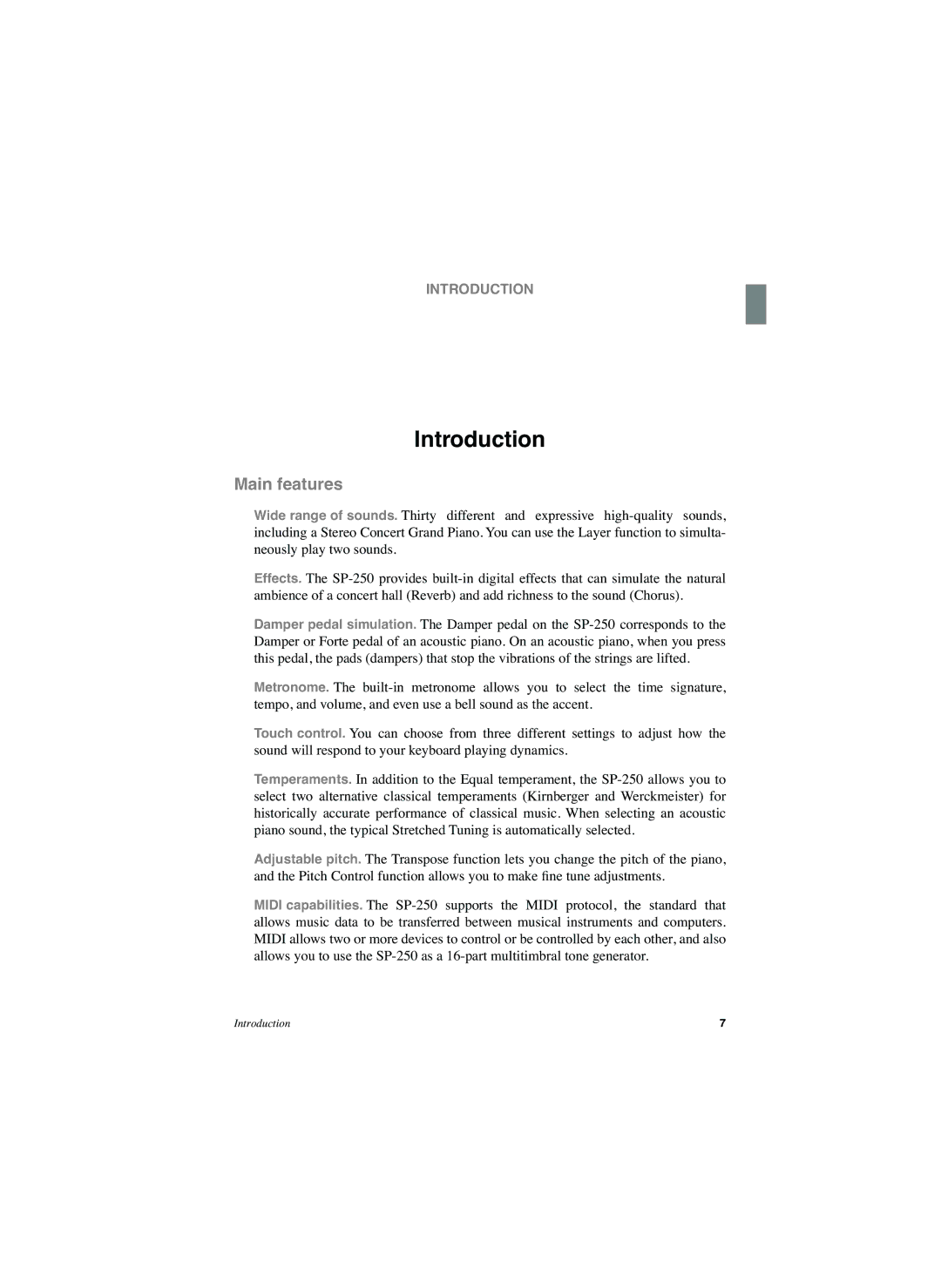
INTRODUCTION
Introduction
Main features
Wide range of sounds. Thirty different and expressive
Effects. The
Damper pedal simulation. The Damper pedal on the
Metronome. The
Touch control. You can choose from three different settings to adjust how the sound will respond to your keyboard playing dynamics.
Temperaments. In addition to the Equal temperament, the
Adjustable pitch. The Transpose function lets you change the pitch of the piano, and the Pitch Control function allows you to make fine tune adjustments.
MIDI capabilities. The
Introduction | 7 |
